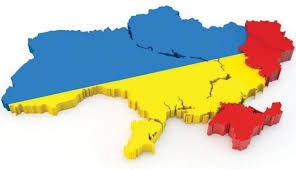
Mishchenko Alla, PhD in Political Science
FORMING OF THE UNRECOGNIZED TERRITORIES AS A DISPLAY OF A TRUST’S EROSION TO INCLUSIVE INSTITUTES IN UKRAINE
Resume. The article is devoted to the exposure of mutual influence between the citizens’ erosion of trust to the inclusive institutes and forming of unrecognized territories in Ukraine. On the basis of interdisciplinary approach it has been well-proven that low level of vertical co-operation facilitates delegitimization of the transformed old and recently established inclusive institutes between the citizens and authority while in a crisis period (revolutions, putsches), a distrust assists the development of the secession movements in the most unsteady regions. In the meantime, the long period of inefficiency and central government oriented extractive institutes formed “society of lost faith” which allowed to consider Ukraine as the unique investigated object in Eastern Europe where legally-rational mechanisms of fight against a development of secession are of minimal result and need asymmetrical and non-discriminatory approaches in working with unrecognized and self-proclaimed territories.
There were certain factors, that, accordingly, influenced on forming of the unrecognized territories of modern Ukraine: a crisis of vertical trust, a dominant influence of extractive political and economic institutes, fight for the resource independence of the regions, an instigation and a support of the secessionist movements by the third party (Russia), informative centrist unilaterism in finding out the events and others like that. The important element of a research became the allocation of social groups, that name “secession orphans” (Crimean Tatars, the citizens of the occupied Donetsk and Luhansk territories) in Ukraine, that discriminate against self-proclaimed power, do not acknowledge its legality on realization of management territories and inclined to appeal to the justice of the parent state. The modern Ukrainian power recommends to apply systematic measures in the exposure of factors in discovering of vertical cooperation in tandem “citizen — state power” to avoid the further separatist’s moods in regions, to assist the change of the priorities on the development of state inclusive institutes through the liquidation of extractive, to search for the optimal forms of cooperation with citizens and representatives of the unrecognized territories, securing international law and support for geopolitical players.
Keywords: trust, inclusive and extractive institutes, unrecognized territories, secession movement.
References
- Adzhemohlu, Daron, Robinson, Dzheims (2016). Chomu natsii zanepadaiut? Pokhodzhennia vlady, bahatstva i bidnosti. [Why Nations Fail: The Origins of Power, Prosperity, and Poverty] Kyiv. Nash Format (In Ukrainian)
- Horlo, N. V. (2016). Moralno-pravovi aspekty polityky iredentyzmu [Moral and legal aspects of the policy of irredentism] . Politykus. 2. 63-67 (In Ukrainian)
- Dashdamyrov, A. (2000). Mnoholykyi separatyzm [Multiple separatism] – URL: http://www.ng.ru/polemics/2000-02-05/8_separate.html (In Ukrainian)
- Dynamika rivnia doviry do sotsialnykh instytutsii [Dynamics of trust in social institutions]. (2019), KMIS, Kyiv. (In Ukrainian)
- Kovalevych, L. (2016). Polityka derzhav Yevropeiskoho Soiuzu z protydii setsesionizmu [European Union policy on the fight against secessionism]. Visnyk Kyivskoho natsionalnoho universytetu imeni Tarasa Shevchenka. Seriia «Heohrafiia». №1 (64). 74-77 (In Ukrainian)
- Kliuchnyk, R. (2011). Separatyzm yak svitova mehatendentsiia suchasnosti [Separatism as a World Megatrend of Modernity]. Politychnyi menedzhment. № 6 (51). 120-129 (In Ukrainian)
- Lazhnik, V. Y. (2008). Nevyznani derzhavni utvorennia yak obiekty suchasnoi politychnoi karty svitu [Unrecognized state entities as objects of the contemporary political map of the world]. Nauk. visn. Volyn. nats. un-tu im. Lesi Ukrainky. Heohrafichni nauky. № 1. 202-211 (In Ukrainian)
- Malakhov, V. (2001).
Otdeliai y vlastvui. Retsenzyia na knyhu Allena Biukenena «Setsessyia. Pravo na
otde¬lenye, prava cheloveka y terrytoryalnaia tselost¬nost hosudarstva» [Separate and rule. Review of Allen Buchanan’s
book Secession. Right to secession, human rights and territorial integrity of
the state»] – URL:
http://www.igpi. ru/info/people/friends/malakhov/articles/1132910742.html
(In Russian) - Mishchenko, A.B. (2010). Dovira yak skladova lehitymatsii vlady v umovakh suchasnoi demokratii: [Trust as a component of the legitimation of power in modern democracy] dys. … kand. polit. nauk: 23.00.02. Kyiv. nats. un-t im. T. Shevchenka. Kyiv, 150 s. (In Ukrainian)
- Mishchenko, A. (2017). «Suspilstvo vtrachenoi doviry» yak faktor formuvannia mizhnarodnoi subiektnosti Ukrainy [The Society of Lost Trust as a Factor in the Formation of Ukraine’s International Subjectivity]. Mizhnarodni vidnosyny. Seriia: Politychni nauky: elektron. Vydannia. Kyiv. nats. un-t im. Tarasa Shevchenka, In-t mizhnar. vidnosyn. Kyiv. №14 – URL:http://http://journals.iir.kiev.ua/index.php/pol_n/article/view/3148 (In Ukrainian)
- Obshchestvo bez doveryia [A society without trust] (2014). K. Ynstytut sotsyolohyy NAN Ukraynы (In Ukrainian)
- Popov, F.A. (2010).
Heohrafyia setsessyonyzma v sovremennom myre [The geography of secessionism in the modern world]: dyssertatsyia
na soyskanye uchenoi stepeny kandydata heohrafycheskykh nauk: 25.00.24. M. 166
s.
(In Russian) - Tyshkov, V. (2003). Moralnost separatyzma [The morality of separatism] – URL:http://www.valerytishkov.ru/cntnt/publikacii3/lekcii2/lekcii/n61_moralno.html. (In Ukrainian)
- Ukrainske suspilstvo 1992-2013. Stan ta dynamika zmin [Ukrainian Society 1992-2013. Status and dynamics of change]. (2013). Sotsiolohichnyi monitorynh. K. Instytut sotsiolohii NAN Ukrainy. (In Ukrainian)
- Chabanna, M. V. (2014). Dovira do politychnykh instytutiv: peredumovy ta naslidky dlia demokratii [Trust in political institutions: prerequisites and implications for democracy]. Mahisterium. Politychni studii. Vyp. 58. s. 8-14 (In Ukrainian)
- Shtompka, P. (2001). Sotsyalnoe yzmenenye kak travma [Social change as trauma]. Sotsyolohycheskye yssledovanyia. №1. 6-16 (In Russian)
- EDELMAN TRUST BAROMETER (2019), Global Report, Amsterdam, 61 p., URL:http://www.edelman.com/sites/g/files/aatuss191/files/2019-02/2019_Edelman_Trust_Barometer_Global_Report_2.pdf?utm_source=website&utm_medium=global_report&utm_campaign=downloads;
- Buchanan, Allen E. (1991). Secession: The Morality of Political Divorce, from Fort Sumter to Lithuania and Quebec. Boulder. Westview Press. 174 pp.
- Coppieters, B. (2003). Conclusion: Just War Theory and the Ethics of Secession // Bruno Coppieters and Richard Sakwa (eds). Contextualizing Secession: Normative Studies in a Comparative Perspective. Oxford, Oxford University Press. P. 252–279.
- Lustіck, І. (2004). Secessіonіsm іn multіcultural states: does sharіng powerprevent or encourage іt? Amerіcan Polіtіcal Scіence Revіew. Vol.98, no.2. P. 209-229.
https://visnukpfs.dp.ua/index.php/PFS/article/view/1011





